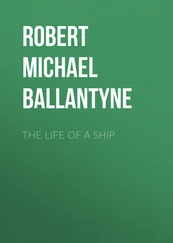As the numbers of people passing through Liverpool to their respective vessels increased, so did the city’s reputation as a sinkhole of disease and crime. To the government, this huge port city was becoming a liability, a victim of its own success. Added to this was the port authority’s rigid insistence that no lights or fires be lit on board a ship while in port—for reasons of fire risk—under any circumstances. This prevented emigrants from boarding their designated vessel in an early and orderly fashion, instead being forced into a mad rush on the day of their departure when hundreds of passengers and their luggage bolted to settle into their ship during daylight hours, with not even a warm meal or cup of tea to welcome them.
Eventually, two respected Liverpool shipping companies, J.S. De Wolf & Company and Barton & Brown, wishing to expand into the emigrant trade, became fed up with Liverpool’s intransigence on the shipboard fire rule and began to ask the government about the possibility of embarking government-assisted passengers from the Birkenhead side of the Mersey. Birkenhead jumped at the overture. Yes, its spokesmen declared, the lighting of fires and lights on board docked or harboured vessels would present no problem, and they could also boast a number of new buildings ably suited for conversion to a safe and well-run emigrant depot. They also threw in free use of a warehouse behind the depot in Cathcart Street, as well as very attractive terms for the moving of cargo.
The timing was perfect. Liverpool had become a headache for the government, so Birkenhead was given the go-ahead to convert its warehouses and begin operating as the Colonial Land and Emigration Commission’s brand new Birkenhead depot for government-assisted emigrants. Staff were sourced, with J.S. De Wolf & Company recommending one of its clerks and his wife, William and Ann Smith, to run it. Liverpool was furious, but its protestations were ignored and, with the paint barely dry, Birkenhead’s first intake of migrants arrived in January 1852.
3
Wakefield and ‘the Board’
I herewith transmit to you a Commission, under the Royal Sign Manual, constituting you to be Commissioners for the sale of the waste lands of the Crown throughout the British Colonies and for applying the proceeds of such sales towards the removal thither of emigrants from this country.
With these words on 14 January 1840, Her Majesty’s Colonial Secretary, Lord John Russell, signed a series of documents bringing into life one of the world’s earliest official institutions dedicated specifically to social relief, the Colonial Land and Emigration Commission—more simply known via a hang-on to one of its earlier incarnations as simply ‘the Board’. Whatever the nomenclature, the need for such a body had long seemed evident to a series of progressive thinkers both inside and outside the British Parliament. One of these was the dynamic, though bizarre, figure of Edward Gibbon Wakefield. As a former diplomat and government official, Wakefield had married well, but when his recently deceased wife’s funds proved insufficient to fuel his considerable ambitions, he staged an extraordinary abduction of one Ellen Turner, a fifteen-year-old heiress he had never met, from her school by means of a forged note to the effect that her parents were ill and required her immediate presence. He then spirited her to Gretna Green; there, under duress, the girl agreed to marry him under the no-questions-asked Scottish marriage laws of the day. Her outraged family eventually annulled the marriage and dragged Wakefield to court, where he was sentenced to three years in Newgate Prison. It was here, imbuing himself in the writings of classical theorists and economists such as Adam Smith, that he underwent something of a transformation, renounced his roguish behaviour and found his true calling.
Wakefield’s observations of his fellow prisoners, as well the reasons for their incarceration, led him to believe that the induced but benevolent removal of Britain’s poor to her territories would be to the considerable benefit of both parties. The theory became a cause for which he was to advocate vociferously for the rest of his life. Economic development, believed Wakefield, relied on a balance between land, capital and labour. In both Britain and the colonies, for opposite reasons, this balance was out of kilter. Britain suffered from an excess of labourers—some of whom he had himself encountered in prison—and Australia from such a shortage that her businesses and industries were unable to be properly developed. If some of those now living in poverty in Britain could be given a new chance at life in Australia, many would be kept out of prison, and the situation of both countries improved.
His colourful past notwithstanding, the notoriously persuasive Wakefield managed to excite several more respectable figures about his theories, who became known as the Colonial Reformers or even ‘Wakefieldians’. He managed to reinvent himself as an expert on all matters pertaining to the colonies, and in the mid-1830s attached himself to the Earl of Durham, the Governor-General of Canada, to whom he became an unofficial adviser. Meanwhile, the British establishment—and particularly the prime minister of the day, Lord Melbourne—continued to detest Wakefield, and successfully prevented him from realising his dream of entering parliament.
The power of his personality nonetheless remained undiminished, and Wakefield became a master manipulator from behind the scenes of British and colonial political life. Almost everyone who met him commented on the power of his charisma, and in later life a political foe was to declare that ‘the only security against Wakefield was to hate him intensely’. [1] P. Adams, 2013, Fatal Necessity: British Intervention in New Zealand, 1830–1847 , Wellington: Bridget Williams Books, p. 392
Undeterred, Wakefield presented his scheme to various Australian colonial governments, convincing them to cease their practice of giving away grants of unused Crown land to new settlers, and to instead sell them at auction to the highest bidder. The funds thus raised, he proposed, would provide the monetary engine to assist scores of impoverished but otherwise respectable British emigrants to make a one-way journey to Australia, where they were sorely needed. Such a complex and global operation needed to be run by a single organisation, and Wakefield and others lobbied hard for the Colonial Land and Emigration Commission to be established. He also managed to negotiate the reduction of the cost of an assisted passage to Australia from £30 to £18, and the British government advanced the figure of £10,000 against future land sales in the Australian colonies to assist some of its desperate population to get there.
From a large and chaotic office—in fact, a rented private house at 8 Park Street Westminster—the Board recruited several former Royal Navy officers as agents situated across the country and in Ireland, and went to work directing the funds generated from the respective colonies to bringing people to their particular part of the Empire. This naval influence would permeate much of the Board’s practices, particularly in the running of its emigrant embarkation depots, which were organised along similar lines to ships at sea.
The notion of the Board’s assisted, or in some instances such as with the Highland Scots, free passage out of poverty appealed to a great many destitute or near-destitute Britons, and by 1848 a staff of 30 was processing 46,000 letters a year. According to a contemporary account, the Board’s office was always a flurry of human activity, with hundreds of people every day showing up at its doors for a chance at a new beginning:
It is of no use pretending not to know where Park Street Westminster is… Follow the stream of fustian jackets, corduroy trousers and smock-frocks, keep in the rear of the chattering excited parties of half-shaven mechanics, slatternly females and slip-shod children. They are all moving in one direction which, if we can but get at it through the crowd, is the much-sought office of the Commissioner of Land and Emigration. [2] Pescod, 2001, p. 7
Читать дальше












